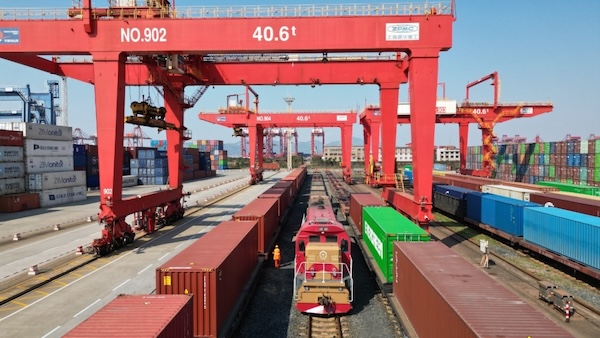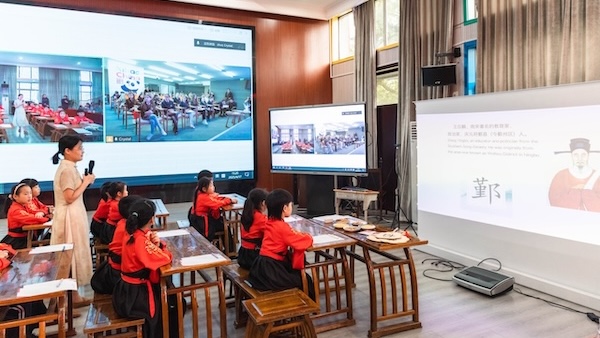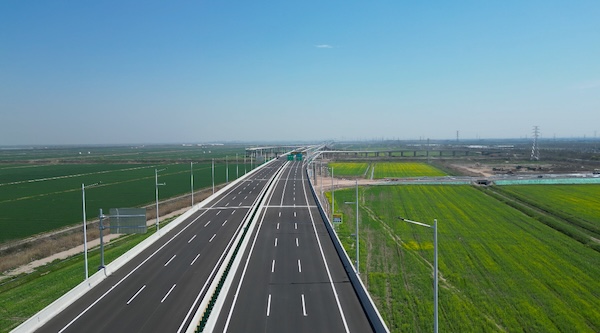Report delves into living standards in Yangtze delta
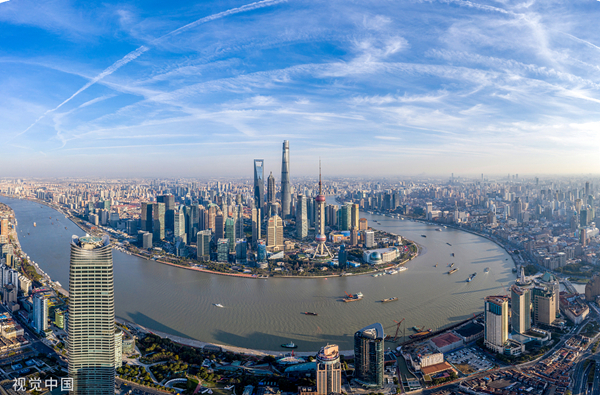
A view of the Huangpu River in Shanghai. [Photo/VCG]
Researchers in Shanghai have published a report on high-quality living in the cities of the Yangtze River Delta, aiming to establish a benchmark for people's aspirations and expectations for a better life in the new era.
The report, published by the Shanghai Development Institute of the Shanghai Party Institute of the Communist Party of China on Wednesday, introduces a high-quality living evaluation system with indicators divided into three levels and four dimensions. These dimensions encompass health and green living, life-work harmony and social justice, smart and convenient living, and personal development and life services.
According to Pan Wenxuan, who led the research, the four dimensions focus not only on material improvements but also on enriching spiritual aspects of life. They represent an organic combination of economic, social, cultural, political and ecological aspects.
This report marks the third research report on high-quality living by the research group in recent years. While the previous two reports only covered Shanghai, this one includes 17 major cities in the Yangtze River Delta region, such as Nanjing, Hangzhou and Hefei.
"The Yangtze River Delta region is known for its high living standards and improving the quality of life in the cities of the region will have a demonstrative and leading role in improving the quality of life for people across China," Pan said.
The evaluation results reveal that Shanghai maintains a significant advantage in almost all dimensions, especially smart and convenient living as well as personal development and social justice, making it the city with the highest quality of life in the Yangtze River Delta region.
However, there are areas in Shanghai that still need improvement, particularly in terms of life-work balance and economic growth potential.
In Zhejiang, major cities such as Hangzhou and Jiaxing rank second and third, respectively, among major cities in the delta in terms of quality of life. In Jiangsu, the intercity gap in quality of life among major cities is relatively small, with Nantong, Suzhou and Wuxi at the top.
For major cities in Anhui, the overall quality of life is relatively backward, but certain domains show significant advantages. For example, Fuyang exhibits higher work-life balance, while Hefei ranks among the top major cities in the delta for smart and efficient government services and social justice.
Based on the analysis, the research group proposes ideas and measures to optimize high-quality living in the delta region. They emphasize the need for better utilization of integration and collaboration, including infrastructure connectivity, resource sharing and collaborative governance.
Qiu Zeqi, director of the China Social and Development Research Center at Peking University, commended the research and highlighted the evolution of people's aspirations and expectations for high-quality living as society develops.
The research group's evaluation system reflects these new characteristics and expectations and acknowledges the importance of spiritual enrichment, work-life balance, and mental well-being in addition to materialistic concerns, Qiu said.
"Regardless of the internal divisions within Shanghai's society, whether there is poverty, wealth, ease or hardship, overall, the way of life of Shanghai residents was something that all Chinese people once desired," Qiu said. "I believe that the way of life for people in the Yangtze River Delta can also become a desired lifestyle for Chinese people in this new era, in the digital age."
Yet Qiu also expressed the need to continue exploring what constitutes high-quality living in the new era, as addressing this question properly can establish the Chinese path as a benchmark for other developing countries and the world.
"I believe that the Yangtze River Delta has the opportunity and capability to create not only a high-quality lifestyle for the region but also for humanity as a whole," Qiu said.
linshujuan@chinadaily.com.cn

 Ningbo seabird project seeks international volunteers
Ningbo seabird project seeks international volunteers  Jakub's journey: From shipyard to sea
Jakub's journey: From shipyard to sea 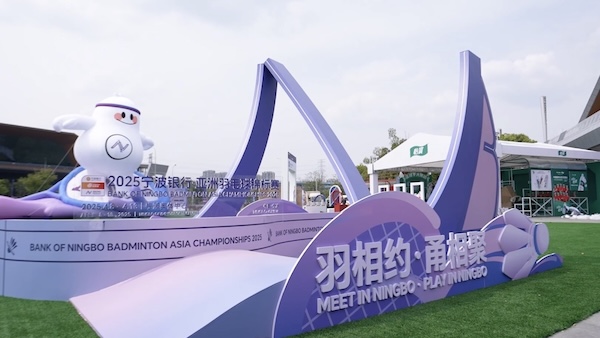 Badminton Asia COO applauds Ningbo
Badminton Asia COO applauds Ningbo 